JULIA'S EYES, DETECTIVE DEE, BANG BANG CLUB, AND MORE BLACK SWAN
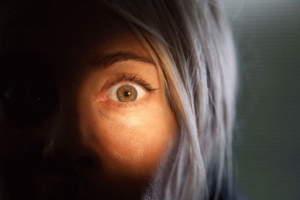 The Toronto International Film Festival winds down this weekend, and Brian De Palma was spotted as recently as yesterday, when Guardian critic David Cox tweeted that De Palma was sitting behind him at a screening for Tsui Hark's Detective Dee and the Mystery of the Phantom Flame. Regarding De Palma, Cox tweeted, "Don't think there's time to get him to explain FEMME FATALE." Regarding the film, which is said to have stunning visuals, Cox tweeted that it "was a flamboyant way to bring my festival to a close. It even had fire turtles." On Monday (September 13th), Empire Movies' Liam Cullin tweeted that he saw De Palma waiting in line for a screening of Steven Silver's gonzo journalist film The Bang Bang Club, which Screen Daily's Mark Adams was quite impressed by. Based on true events, The Bang Bang Club follows "a band of freewheeling, hard-partying, daredevil photographers in South Africa of 1994, in the turbulent moments of the final days of apartheid" according to Adams. "The sequences of them photographing the violence around them," writes Adams, "a violence the[y] start to become immune to – is wonderfully staged, and a scene of Ryan stumbling onto a brutal photograph of a killing that will win him a Pulitzer Prize is quite memorable. So too a similar (though very different) scene where Carter travels to the Sudan and take a photo of a starving girl stalked by a menacing vulture, which will eventually win a Pulitzer for him as well."
The Toronto International Film Festival winds down this weekend, and Brian De Palma was spotted as recently as yesterday, when Guardian critic David Cox tweeted that De Palma was sitting behind him at a screening for Tsui Hark's Detective Dee and the Mystery of the Phantom Flame. Regarding De Palma, Cox tweeted, "Don't think there's time to get him to explain FEMME FATALE." Regarding the film, which is said to have stunning visuals, Cox tweeted that it "was a flamboyant way to bring my festival to a close. It even had fire turtles." On Monday (September 13th), Empire Movies' Liam Cullin tweeted that he saw De Palma waiting in line for a screening of Steven Silver's gonzo journalist film The Bang Bang Club, which Screen Daily's Mark Adams was quite impressed by. Based on true events, The Bang Bang Club follows "a band of freewheeling, hard-partying, daredevil photographers in South Africa of 1994, in the turbulent moments of the final days of apartheid" according to Adams. "The sequences of them photographing the violence around them," writes Adams, "a violence the[y] start to become immune to – is wonderfully staged, and a scene of Ryan stumbling onto a brutal photograph of a killing that will win him a Pulitzer Prize is quite memorable. So too a similar (though very different) scene where Carter travels to the Sudan and take a photo of a starving girl stalked by a menacing vulture, which will eventually win a Pulitzer for him as well."BLACK SWAN
Meanwhile, De Palma' name keeps popping up in reviews of Darren Aronofsky's Black Swan. Empire critic Damon Wide on Monday blogged, after seeing Black Swan in Toronto, that "At the moment, the film, for me, is still too fresh to filter, but I suspect that once it has settled, and I've stopped wondering why it reminded me of films as diverse as Brian De Palma's Sisters, P&P's Black Narcissus and John Cassavetes' Opening Night, it will reveal itself as a film of great power and longevity." Jorge Mourinha calls Aronofsy's film a "smart shocker of the sort Brian de Palma knew how to do so well in his prime, with a strong lead and confident handling making the slightly overwrought plot work." Writing from the Venice fest early this month, TIME's Richard Corliss also mentioned De Palma in his Black Swan review:
I've also heard from folks at Venice who think Black Swan is a junky horror show and [Natalie] Portman way too strident. Me, I'm of two minds about a movie that wants to be a nail-ripping thriller and a statement on an artist's unholy communion with her role. It's reminiscent of older, better movies: the late-'40s backstage dramas A Double Life (Ronald Colman plays Othello, becomes fatally jealous of his actress ex-wife) and the classic ballet melodrama The Red Shoes; and of films about tender, troubled psyches in the films — I won't say which ones — of Roman Polanski, Dario Argento, Brian De Palma, David Cronenberg and David Fincher. Black Swan also takes a view of women that might kindly be described as old-fashioned.
JULIA'S EYES SUGGESTS DE PALMA, SAYS SALON CRITIC
And finally, Salon's Andrew O'Hehir sees a De Palma influence in the Guillermo del Toro-produced Julia's Eyes, a horror film directed by Guillem Morales. O'Hehir writes that Julia's Eyes, "which reassembles much of the creative team that made The Orphanage in 2007," is "altogether a chillier, slicker and colder affair, formal and beautiful in composition and shot through with a sadistic eroticism that strongly suggests Brian De Palma." O'Hehir concludes, "I doubt this project occupied much of del Toro's attention, and it's fundamentally an exercise in genre and style -- but what style! The brooding skies and gray-green trees, the closely packed prewar houses, the naked bodies in a locker room full of blind women, the deepening shadows as Julia's sight gives way and evil comes ever closer. Even the deep, dark crimson when we finally see blood. (Despite this movie's moodiness, it's not without its share of gruesome gore.) In the long arc of Guillermo del Toro's career, Julia's Eyes is a minor side project -- but we can only wish that one in 20 American horror films were this well made."




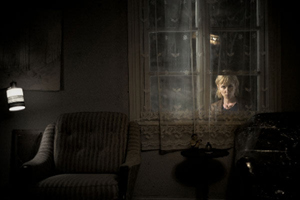 Brian De Palma turns 70 today, and he appears to be celebrating by attending the 2010
Brian De Palma turns 70 today, and he appears to be celebrating by attending the 2010 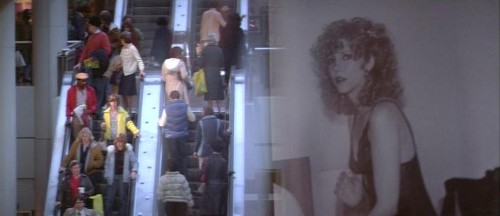
 With Armond White set to be one of the guests on tonight's Carrie-related episode of the
With Armond White set to be one of the guests on tonight's Carrie-related episode of the 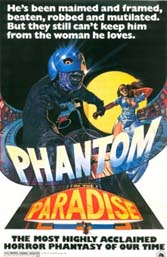
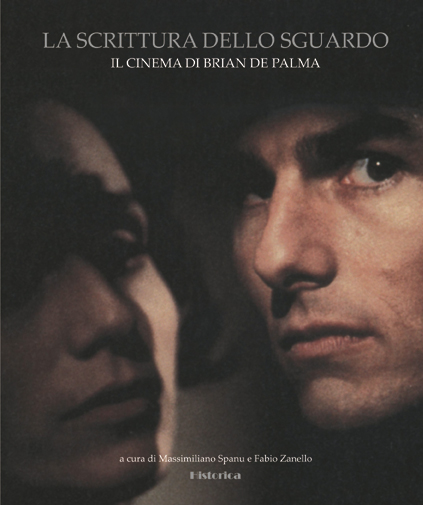 At the Venice Film Festival today,
At the Venice Film Festival today, 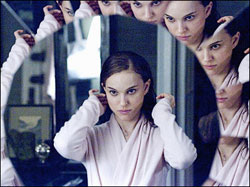 Darren Aronofsky's Black Swan opens the Venice Film Festival tonight, but a critics preview this morning has created a buzz.
Darren Aronofsky's Black Swan opens the Venice Film Festival tonight, but a critics preview this morning has created a buzz.  David Koepp is currently shooting a new movie, Premium Rush, in New York City. The other day,
David Koepp is currently shooting a new movie, Premium Rush, in New York City. The other day,